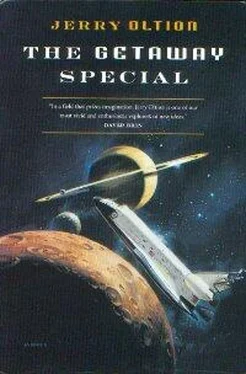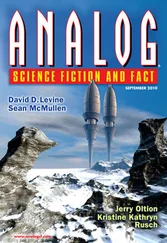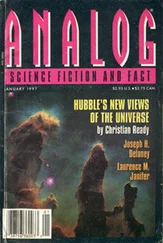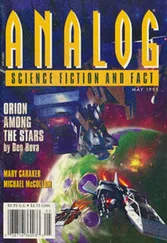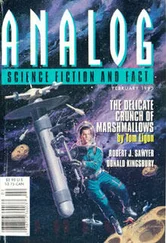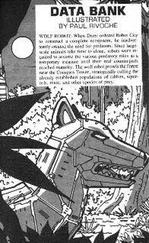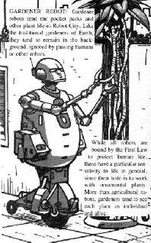Judy sighed. “I don’t know. Maybe I’m worried about nothing. When I first realized what we were dealing with, I was afraid we’d be killed before we could get the secret out, but now I’m starting to wonder how many people are going to be killed because of it.”
“Nobody,” Allen said. “The word is spreading as we speak, and it’s spreading way too fast to stop.”
“You hope.”
“I know.”
He turned back to his computer. “I’m ready to test it.”
“You’ve figured out where we are?” Judy squinted out the windshield at the sun. It was a tiny, bright circle against black space.
Allen shrugged. “Close enough. We’re somewhere past Jupiter’s orbit. Jupiter is clear around on the other side of the Sun right now, but that’s how far we are. I think.”
She gave him a sidelong glance. “I thought you were going to do your testing between Earth and Mars.”
He shrugged. “I thought so too, but with the Sun the size it is, we can’t be there. Evidently I miscalculated.”
A shiver ran down Judy’s back. What if he’d miscalculated on something more dangerous, like the diameter of the space warp his engine created, or whether people could live inside its sphere of influence? He could have killed them all the first time he pushed the “Go” button.
He might kill them yet. If something else burned out in the hyperdrive, they could be stranded millions of miles from help, and even if they did manage to make it back to Earth, there was no guarantee they could achieve orbit again. And if they managed that, they still couldn’t land the normal way. Not with the vertical stabilizer vaporized. Discovery would need major repairs before it could ever negotiate the atmosphere again.
Judy dreaded the investigations she would have to endure once—if—they landed. Maybe it was just Carl’s pessimism getting to her, but she was beginning to regret her rash defiance of authority, if only for the inconvenience it would cause her before she could actually use Allen’s device for exploring. But the alternative—letting it become a military secret—felt infinitely worse.
She took a deep breath and said, “Go ahead and do what you have to do.”
As Allen keyed in coordinates, he said, “I’m going to set it for one-tenth of a percent of our first jump. That should cut our distance down to a few light-seconds, and put less strain on the engine.”
Judy nodded. “Good.”
He pressed the “Go” button. The radio beeped, but the view out the windows remained the same. Judy didn’t know whether that was because they hadn’t gone anywhere, or because they just hadn’t gone far enough to change the scenery. Without planets close by, that would take a long jump. They would have to leap clear across the Solar System before the stars would even start to shift position.
Seconds crawled by while they waited for the radio pulse to catch up with them. Judy said, “Are you sure your receiver is—” but then the radio beeped again and Allen said, “Aha, got it! We went… three and a half million miles. Holy cow.”
He keyed in more coordinates, then took them through hyperspace again. After five or six seconds, the radio beeped again, then about ten seconds later it beeped again. “Okay,” he said, “we’ve got our triangulation, and that at least looks good. No aiming error. But that distance…” He trailed off, keying in more coordinates.
He took them on three more jumps in rapid succession. Every time Judy heard the beep of the radio beacon, she felt a shiver run up her spine. It wasn’t the sound, but the momentary disorientation of the jump that went with it. Each time it happened, she imagined herself being torn apart atom-by-atom and squirted through some higher dimension to someplace else. Allen had sworn it didn’t work that way, but her subconscious mind evidently didn’t believe him. She wished he would at least get the thing calibrated so she wouldn’t keep wondering if the next jump would take them halfway across the galaxy.
But after their fifth jump in as many minutes, he was still frowning and scratching his head. “What’s wrong?” she asked him.
“It doesn’t make sense,” he said. “It’s taking far less energy to create the space warp than I calculated it would. It’s almost an order of magnitude off, except for the jumps from Earth and the Moon. Those were only four or five times as efficient as I expected. But that still translates into distances anywhere from ten to a hundred times as far as I intended to take us.”
“You mean you can’t predict where you’re going to go?”
He smiled reassuringly. “Sure I can. It’s repeatable; we demonstrated that earlier. I can figure out the energy/distance correlation by trial and error if I have to, but I’d much rather be able to calculate it ahead of time, especially for long jumps. When we start going light-years at a stretch, we don’t want to wind up in interstellar space with no idea of where we are.”
Judy shivered. “You’re right about that.” She didn’t even like not knowing where in the Solar System they were, but to be lost light-years away from home would be terrifying.
Allen drifted up to the overhead windows and looked out. “Hmm. I wonder…”
“What?” A cooling fan turned on in the control console; Judy pulled herself closer to Allen so she could hear better.
“I wonder if mass has anything to do with it. I did all my initial tests in vacuum chambers at the bottom of Earth’s gravity well; maybe it doesn’t take as much energy to punch a hole in space when you’re not close to a large mass.”
Judy felt her breath catch in her throat. She had to swallow before she could say, “ Maybe mass has something to do with it? You don’t know ?”
He shrugged. “How could I? This is my first chance to get away from it.”
“But—didn’t your theories predict anything like this?”
He smiled cheerfully. “What theories? I stumbled across the effect while I was working on the electron plasma battery. I puzzled it out enough to make the engine, but I don’t have anything like an all-inclusive theory to explain it.” He pushed himself back down to the keypad and typed in another set of numbers.
“What about relativity?” Judy asked.
Allen laughed. “If relativity could predict something like this, we’d have been using hyperdrive since 1925 or so. No, it’s a completely new phenomenon.” He pulsed the engine again, and while they waited for the timing signal to catch up he said, “I’m betting it won’t contradict anything we already know, but we’ll probably have to modify our existing theories to account for it. In the meantime, if we can figure out how it works experimentally, we’ll be miles ahead of the theorists.”
“So to speak,” Judy said.
The radio beeped, and Allen said, “Okay, another three million miles. Now we go back near a gravity field…” He punched in more coordinates, and when he pressed the “Go” button Earth blinked into view again, this time at least half a million miles away. The Moon was just a small sphere beside it.
Allen didn’t wait for the timing pulse to catch up. He set up another jump, and this time Earth shifted across the star field. They’d apparently gone sideways, rather than toward or away from it. When the timing pulse from that jump arrived, Allen nodded and said, “Two hundred thousand. Much shorter. So gravity does affect it. Now we just have to figure out how much.” He began to whistle softly as he set to work analyzing the data.
After a few minutes, he said, “Hang on; I’m going to see if I can actually hit a target this time.”
“What target?” Judy asked immediately, but he’d already pushed the button. She looked out the windows and gasped in surprise. Saturn had swelled into view like a soap bubble rising from a cosmic bathtub toy. The planet itself looked about the size of the full Moon seen from Earth, with its rings more than double that width. The shuttle had materialized over one of the poles, so the rings went all the way around.
Читать дальше
